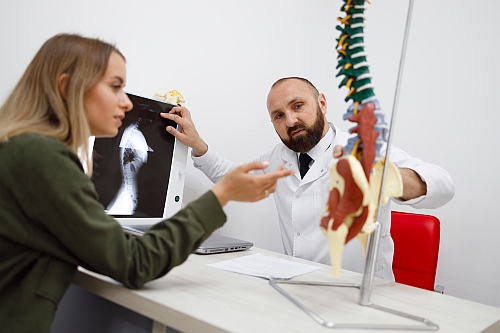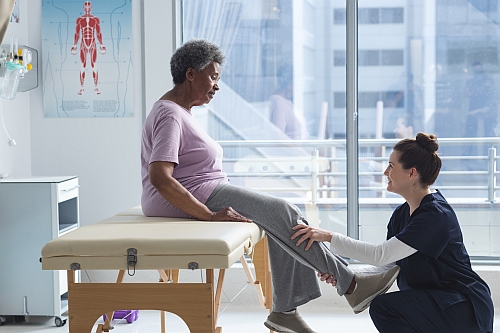Car accidents are sudden, life-altering events that can leave behind more than just visible damage to vehicles. For those involved, the consequences often extend far beyond the crash itself, manifesting in physical injuries, emotional trauma, and financial burdens. While the immediate impact of a car accident is unmistakable, it is the lingering effects—both physical and psychological—that can significantly disrupt a person’s quality of life.
In this blog, we explore the long-term effects of car accident injuries, the importance of consulting an experienced car accident doctor, and strategies for physical, emotional, and financial recovery.
Physical Injuries and Their Long-Term Effects
Car accidents can result in a range of physical injuries that may have long-term consequences. Understanding these injuries is essential for victims and their families as they navigate recovery.
Traumatic Brain Injuries (TBIs)
Traumatic brain injuries (TBIs) are among the most serious consequences of car accidents. These injuries can lead to long-term effects such as cognitive impairments, memory loss, and changes in personality. Victims may experience ongoing challenges in daily activities, requiring extensive rehabilitation and support.
Spinal Cord Injuries (SCIs)
Spinal cord injuries (SCIs) can significantly impact a person’s mobility and independence. Depending on the severity and location of the injury, victims may face partial or total paralysis. This condition often necessitates long-term medical care, physical therapy, and potential lifestyle adjustments to accommodate new limitations.
Soft Tissue Injuries and Chronic Pain
Soft tissue injuries, including sprains, strains, and whiplash, can lead to chronic pain that persists long after the initial accident. These injuries can affect a person’s ability to work, engage in recreational activities, and maintain a normal lifestyle. Ongoing physical therapy and pain management strategies may be required to address these issues.
Neck and Head Injuries
Injuries to the neck and head, such as whiplash or concussions, can have long-term effects on a victim’s well-being. Symptoms like headaches, dizziness, and neck pain can become chronic, impacting daily life and mental health. Victims often need comprehensive medical treatment to manage these ongoing issues.
Severe Bone Fractures and Amputations
Severe bone fractures can lead to complications such as infections or improper healing. In some cases, amputation may be necessary due to the extent of the injury. This can result in significant lifestyle changes, requiring prosthetics and rehabilitation to adapt to new physical realities.
Burn Injuries and Organ Damage
Burn injuries from car accidents can cause severe physical and emotional trauma. Victims may face long-term medical treatment, including surgeries and skin grafts, as well as psychological support to cope with the aftermath. Organ damage from impact or exposure can also lead to ongoing health issues, necessitating continuous medical care.
Psychological and Emotional Impact
Experiencing a car accident can lead to profound psychological and emotional effects that persist long after physical injuries have healed. Victims often face a range of mental health challenges, which can significantly affect their daily lives and overall well-being.
Post-Traumatic Stress Disorder (PTSD)
Many car accident victims develop post-traumatic stress disorder (PTSD). This condition can manifest through flashbacks, nightmares, and severe anxiety. Individuals may find themselves reliving the traumatic event, leading to heightened fear and avoidance behaviors. Seeking help from a mental health professional is crucial for managing these symptoms and fostering recovery.
Anxiety and Depression
Anxiety and depression frequently accompany the aftermath of a car accident. The stress from dealing with injuries, medical bills, and lifestyle changes can overwhelm victims. Persistent feelings of sadness, hopelessness, and anxiety can hinder recovery and affect relationships. Support groups and therapy can provide valuable coping mechanisms and emotional support.
Emotional Trauma and Behavioral Changes
Car accidents often leave emotional scars that alter a person’s behavior. Victims may experience mood swings, irritability, or withdrawal from social interactions. These changes can strain relationships with family and friends, making it essential to address emotional trauma through counseling or support networks. Recognizing these behavioral changes is an important step towards healing and regaining a sense of normalcy in life.
Financial and Economic Consequences
Car accidents can lead to significant financial burdens for victims. The aftermath often involves various costs that extend well beyond immediate medical bills. Understanding these economic consequences is essential for anyone affected by a car accident.
Medical Expenses and Ongoing Treatment Costs
Medical expenses can pile up quickly after a car accident. Victims may face costs for emergency room visits, surgeries, and hospital stays. Even after initial treatment, ongoing medical care is often necessary. This includes physical therapy, medication, and follow-up appointments. For some, these expenses can become a long-term financial strain, especially if injuries require continuous management.
Lost Wages and Reduced Earning Capacity
Injuries from car accidents can lead to lost wages. Many victims are unable to return to work immediately or may need to reduce their hours, impacting their income. In severe cases, injuries can lead to a permanent reduction in earning capacity. This loss can affect a person’s quality of life and financial stability, making it vital to account for these factors when assessing damages.
Property Damage and Legal Expenses
Car accidents often result in property damage, primarily to the vehicles involved. Repair or replacement costs can be substantial, adding to the financial burden. Additionally, victims may incur legal expenses if they pursue compensation. Hiring an experienced auto accident attorney can help navigate these complexities but also involves costs that can accumulate over time. Understanding all these financial aspects is crucial for car accident victims as they seek to recover and rebuild their lives.
Social and Lifestyle Changes
Car accidents can lead to significant shifts in a person’s daily life. The aftermath of serious injuries often requires victims to adapt to new realities. These changes can affect not only their physical capabilities but also their social interactions and overall lifestyle.
Lifestyle Adjustments and Home Modifications
After a car accident, many individuals face physical limitations due to their injuries. This may require lifestyle adjustments, such as changes in daily routines and activities. For example, someone recovering from spinal cord injuries may need to use a wheelchair, necessitating modifications in their home. Installing ramps, wider doorways, and grab bars can make a home more accessible. These adjustments can help accident victims regain a sense of independence, but they can also be costly.
Strained Relationships and Social Isolation
The long-term effects of car accident injuries can also strain relationships with family and friends. Physical limitations may prevent victims from participating in social gatherings or family events. This can lead to feelings of isolation and loneliness, as the injured person may struggle to connect with others who do not understand their situation.
Moreover, the emotional trauma associated with car accidents can create tension in relationships. Family members may feel overwhelmed by the responsibility of caregiving, while the injured person may experience frustration and anger over their circumstances. Open communication and support from loved ones are vital in navigating these challenges. Support groups can also provide a sense of community, allowing victims to share their experiences and feelings with those who understand.
Coping and Rehabilitation Strategies
Recovering from car accident injuries involves more than just physical healing. It requires a comprehensive approach that addresses both physical and emotional well-being. Here, we explore effective coping and rehabilitation strategies to support long-term recovery for car accident victims.
Ongoing Medical Treatment and Physical Therapy
Regular medical care is essential for those dealing with the aftermath of serious injuries. Ongoing medical treatment may include visits to healthcare providers for check-ups, medication management, and specialized therapies. Physical therapy plays a crucial role in recovery, helping to restore mobility and strength. It can also address chronic pain and improve overall function. Patients should stay committed to their therapy sessions, as consistency can lead to better outcomes.
Adaptive Strategies and Emotional Resilience
In addition to physical rehabilitation, emotional resilience is vital for recovery. Many car accident victims experience emotional distress, anxiety, or depression. Engaging in support groups can provide a sense of community and understanding. Therapy with a mental health professional can also help address emotional trauma. Practicing mindfulness techniques, such as meditation and deep breathing exercises, can improve emotional well-being.
Adapting to new limitations may require lifestyle changes. This could mean modifying daily activities or finding new hobbies that accommodate physical restrictions. Building a strong support network of family and friends can also provide encouragement and motivation throughout the recovery process.
Seek Treatment With Our Experienced Car Accident Doctors ASAP!
If you or a loved one are dealing with the long-term effects of a car accident, don’t navigate this challenging journey alone. Our team at Georgia Spine & Orthopaedics is here to provide expert care, personalized treatment plans, and support to help you regain your quality of life.
Contact us at 678-929-4494 to schedule an appointment today!






